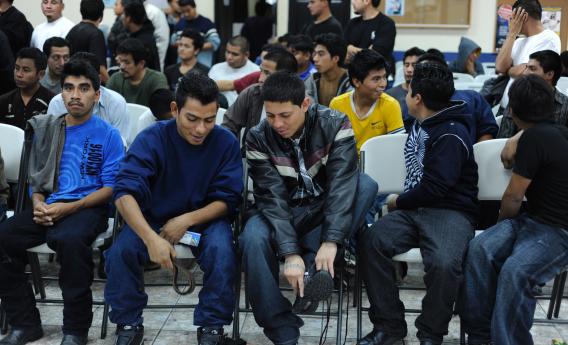At 2:30 today, four Republicans and four Democrats will roll out their framework for immigration reform. You can read it here. My colleague Matthew Yglesias has been covering the substance of the proposals, and former Slatester Mickey Kaus delivers the skepticism that we count on him for. He reads it close and sees that the “probationary legal status” included in the proposal would amount to legalization, period.
We need to know more about a few sections that point this way.
Our legislation would allow employers to hire immigrants if it can be demonstrated that they were unsuccessful in recruiting an American to fill an open position and the hiring of an immigrant will not displace American workers.
The reference is to undocumented immigrants, which makes it sound like the government will give waivers to employers who can prove (how?) that they made a good-faith effort to entice blue-eyed Ohio State grads to work at the meat-packing plant, but no dice.
Due to the utmost importance in our nation maintaining the safety of its food supply, agricultural workers who commit to the long term stability of our nation’s agricultural industries will be treated differently than the rest of the undocumented population because of the role they play in ensuring that Americans have safe and secure agricultural products to sell and consume.
This refers to a special tracking/citizenship program for ag and dairy workers—one that does not currently exist and would have to be designed.
